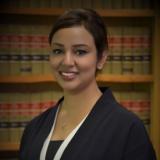Cynthia Farid - Bangladesh: Constitutional Experiments in an Aid Lab
A mass movement led by students has ousted Bangladesh’s long-standing autocrat after some 15 years in power. In the aftermath of Sheikh Hasina’s fall, an interim government under Professor Muhammad Yunus along with a cabinet of advisors including a handful of technocratic experts, two students from the movement and a selection of lawyers, NGO leaders and activists, and a representative of one of the mainstream Islamist parties, the Hefazati Islam has been formed. Key challenges for this government has included restoration of law and order, reforming state institutions, creating consensus for electoral transition, and managing regional and geopolitical tensions. The government has continued to insist on reform, particularly legal and constitutional reform. Some quarters including the students' groups have been considering a new constitution. Bangladesh has experimented with nearly a dozen forms of government, yet democratic transition has been an ongoing concern.
This talk will explore the fault lines within the constitutional discourse in Bangladesh and examine whether the events of the July uprising warrant a new constitution. The proposed reformist agendas in the wake of the July uprising appeared to have been making exteme demands from politics instead of moderating it and aiding in accommodating competing political demands. The proposed talk will also argue that such reformist impulses are rooted in Bangladesh's aid/development discourse which can, as observed in many other Global South contexts, insist on the imposition of "solutions" instead of an organic political process. Finally, in the above context, the talk will consider possibilites of electoral tranisiton and revisiting and/or renewing the social contract between the state and citizens of Bangladesh.
Speakers

Dr. Cynthia Farid is an advocate of the Supreme Court of Bangladesh. She is also a member of the the Global Young Academy in Germany. Her research interests include constitutional law, legal history and law and development in South Asia and knowledge production processes in the Global South.
- Good Governance